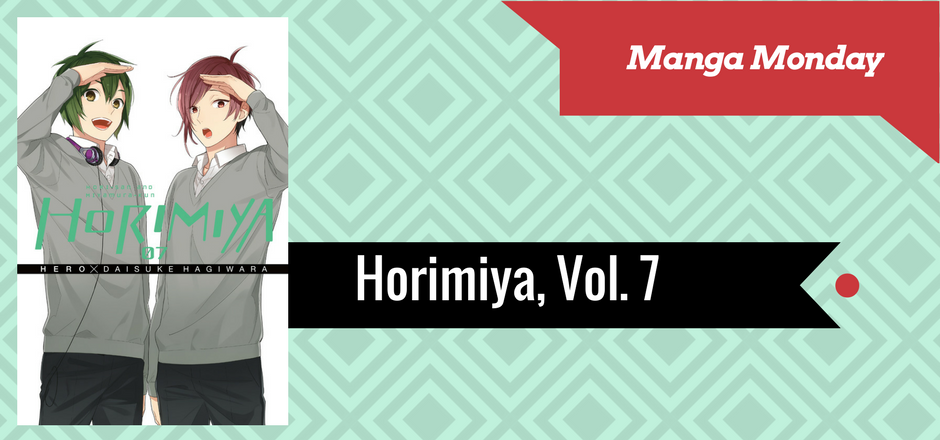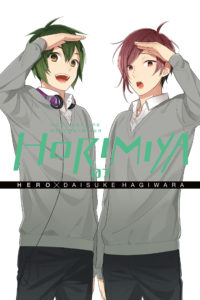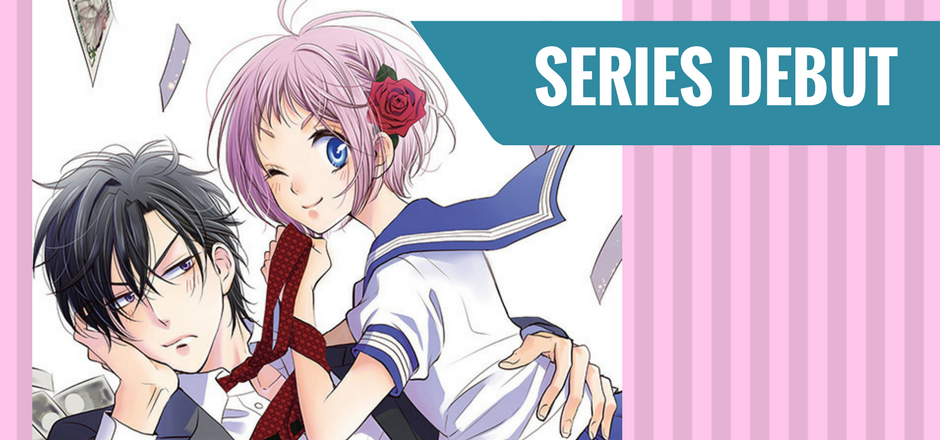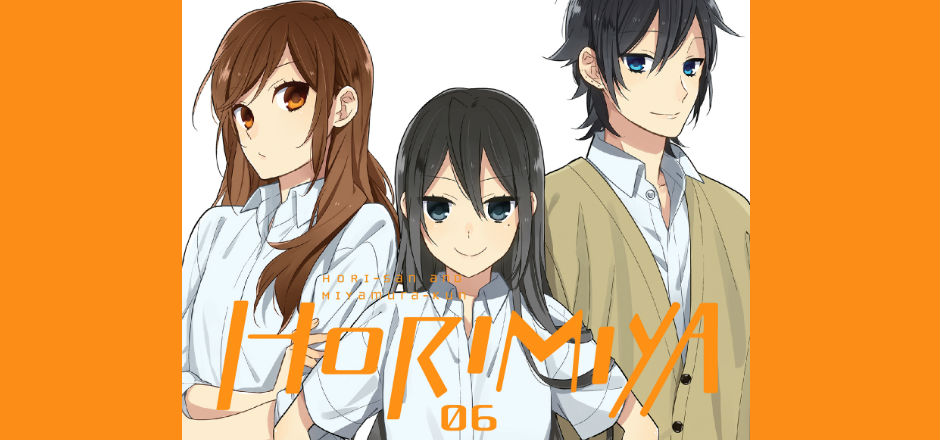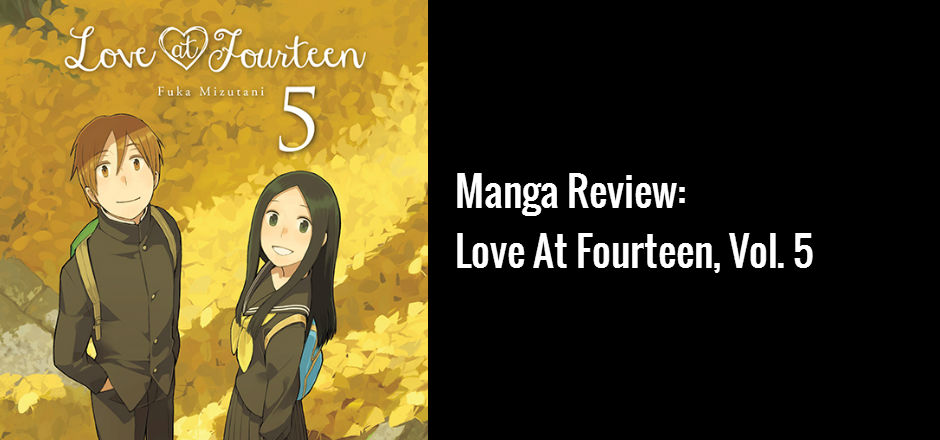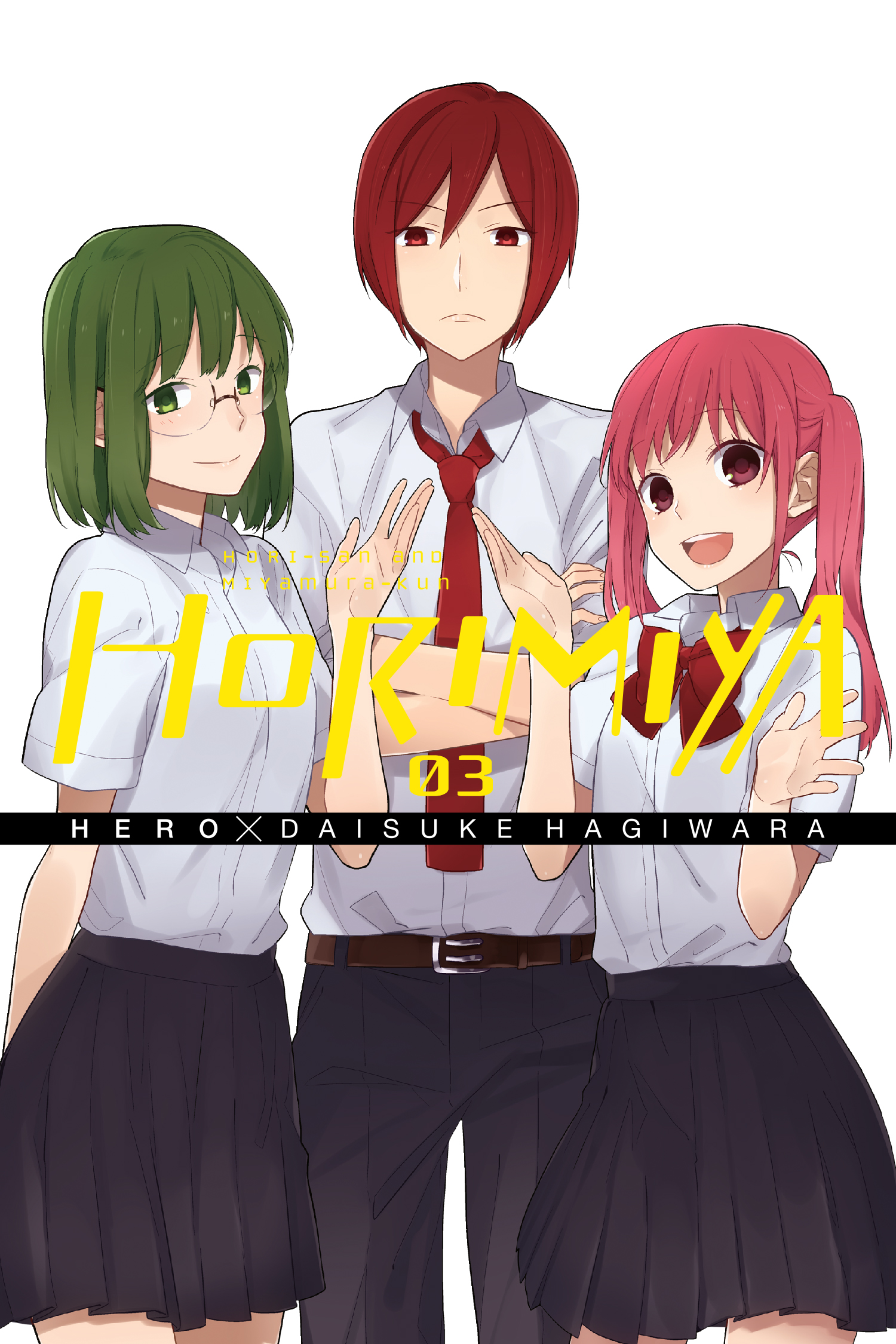Hori’s friend Yuki is asked out by a boy named Yanagi from another class — and when Hori and Miyamura follow along to watch her reject him, they’re shocked to see how unbelievably good-looking he is. Meanwhile, Miyamura is mildly horrified to find out that Hori wants him to be a little more rough and aggressive with her. And with the sports festival approaching, there’s a lot of feelings for the students to work out.
We’ve reached Volume 7 of the Horimiya series, and the story continues to feel realistic and multi-dimensional by expanding its focus from the title characters, Hori and Miyamura, to their slowly widening group of friends.
I love the Horimiya series’ effortless charm, and one of the best things about this manga is the way each of the teenage characters feel like fleshed-out and real high school students. (At one point, Hori asks Yuki if she’d go out with Yanagi if the boy she liked went out with someone else, at which point all of the girls stare at her and remind her that it’s not exactly like a puzzle or something.)
One part of Volume 7 seems odd, especially after the ending of Volume 6: at the start of the volume, Hori asks Miyamura to be more “mean” to her. Throughout the volume, her requests escalate up to things like being smacked on top of her head, getting yelled at, and — in a moment that utterly puzzles him, “Be rougher.”
It’s not made especially clear why she’s asking for these things, although when he acquiesces, it makes her very happy. But what’s very interesting is that while he does do what she asks in order to make her happy, Miyamura also asks Hori’s father (man to man) if it was wrong to do it. While her dad’s a bit puzzled, he tells Miyamura that “she’s probably enjoying the gap,” which is something that might seem odd to readers who aren’t familiar with gap moe.
To be fair, the Horimiya series largely relies on the gap concept, or dissonance between someone’s physical appearance and one-time, occasional, or normal behaviors. It’s not totally random for the topic to make additional appearances in the manga, but it’s a little unusual for characters to discuss it in such a meta way.
Parts of Volume 7 seem more well-suited for adults, particularly the plot related to Hori’s interest in Miyamura’s “gap,” but as other characters like Yuki and Sakura try to navigate their feelings and relationships, the manga overall remains pretty solid as a recommendation for teenage readers. This is still a series I would recommend as a solid slice-of-life young adult read.
Story: 4 out of 5 stars
Art: 4 out of 5 stars
Overall: 4 out of 5 stars
Goodreads | Indiebound | RightStuf
This review contains affiliate links. While Girls in Capes does make revenue from purchases made at affiliate links, reviews are not paid, and all reviews contain the staff writers’ honest opinions of the work.
